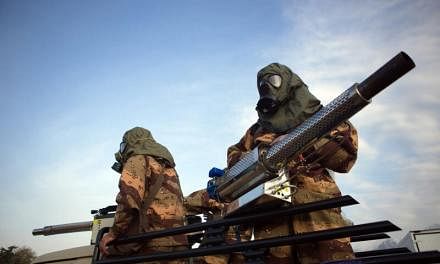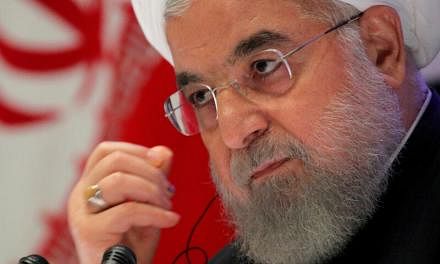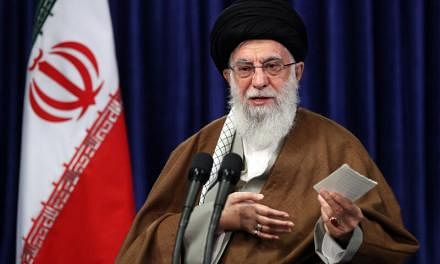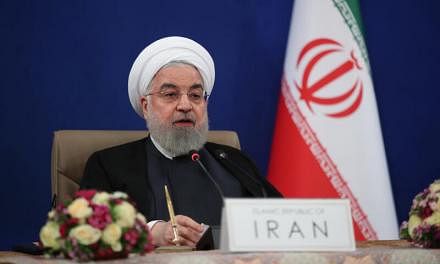A stand-off between the United States and Iran is threatening to boil over after an attack on two oil tankers in the Gulf of Oman, triggering a surge in the price of oil.
US President Donald Trump, speaking on US television, pinned Thursday's attacks on Iran, while Teheran has vehemently denied the attacks. It accused Washington of "economic terrorism".
Hours after the attacks on Thursday, the US military released a video which it said showed Iran's Revolutionary Guard removing an unexploded mine from the side of the Japanese-owned oil tanker Kokuka Courageous.
The footage shows Iran "did do" the tanker explosions, Mr Trump said in an interview on Fox television network yesterday. When asked how the US will stop Iran, he replied: "We will see."
He also said it was unlikely that Iran could close the Strait of Hormuz, through which one-fifth of the world's oil supply passes every year - but if it did, the strait would not remain closed for long.
Oil prices jumped as much as 4 per cent after Thursday's incident.
The attacks are believed to have involved magnetic bombs that attached themselves to the hulls of the vessels, forcing their 44 crew members to abandon ship.
English-language Iranian television aired footage of the 23 crew members rescued from the Norwegian-owned Front Altair.
The US military said 21 crew members of Kokuka Courageous were picked up by a Dutch tug and transferred to a US naval ship.
International leaders have expressed concern at the escalating tensions in the region, and called for calm.
China, which has close energy ties with Iran, urged both sides to exercise restraint and resolve their differences through dialogue.
"Nobody wants to see war in the Gulf. That is not in anyone's interest," Foreign Ministry spokesman Geng Shuang told a regular news briefing in Beijing.
Singapore said it was deeply concerned about the rising tensions, and urged all parties to exercise restraint.
Japanese Prime Minister Shinzo Abe, who was wrapping up a visit to Iran yesterday, said the incident would be discussed at an upcoming Group of 20 meeting in Osaka.
The US and Iran have been locked in a tense stand-off since Mr Trump pulled out of a nuclear deal signed in 2015, reimposed sanctions on the Islamic republic and bolstered the US military presence in the region.
Last month, he tightened sanctions further, cutting off most of Iran's oil exports, which have slumped to 400,000 barrels a day from 2.5 million barrels a year ago.
Iran, in turn, has said it would block all tanker traffic through the Strait of Hormuz.
The attacks on the two tankers come a month after four oil tankers were damaged in an unclaimed attack off the United Arab Emirates. The US has also blamed Iran for those attacks.
The US has sent an aircraft carrier battle group to the Persian Gulf, saying that its intelligence indicated that Iran or its proxies were preparing an attack.
The heightened tensions have raised fears of a miscalculation on either side that could spark a military confrontation.
A purported attack on the USS Maddox in the Gulf of Tonkin during the Vietnam War was widely seen as a turning point that dragged the US deeper into the conflict, said Australian National University security and intelligence studies professor John Blaxland.
"Surely the lessons of the Gulf of Tonkin debacle have been learnt. But perhaps they haven't."
SEE TOP OF THE NEWS
US-Iran stand-off takes a dangerous turn
US military faces expensive and difficult options in the Gulf












